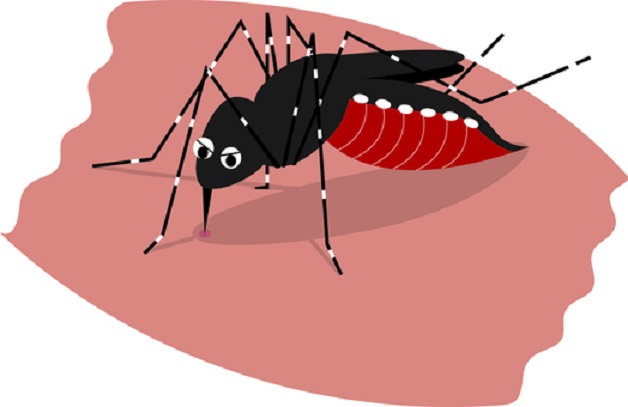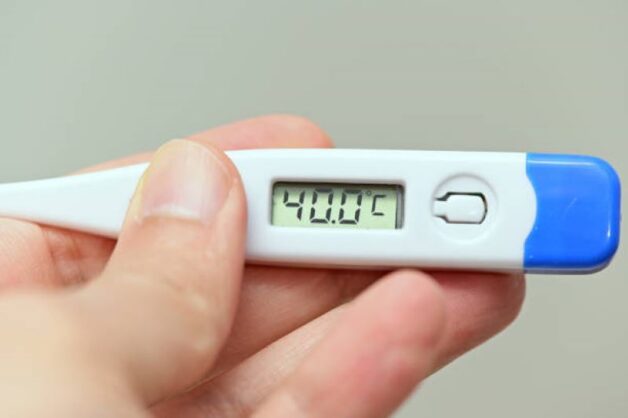Differentiating between dengue fever and viral fever is crucial for monitoring and managing the health of individuals and their families. Accurate differentiation aids in implementing appropriate treatment methods, leading to quicker and more effective outcomes.
1. Distinguishing Features:
1.1 Transmission Routes
Dengue fever is transmitted through the Aedes mosquito, carrying the Dengue virus. In tropical regions, especially during the rainy season, the risk of dengue fever increases due to the ideal environment for mosquito breeding.
Viral fever, caused by various viruses such as Rhinovirus and Orthomyxovirus, spreads through respiratory droplets, coughing, sneezing, and contact with virus-contaminated surfaces.

Dengue fever is transmitted from person to person through the Aedes mosquito
1.2 Symptom Differentiation
Dengue fever symptoms progress through stages, including an asymptomatic incubation period, high fever accompanied by joint and muscle pain, and potential complications such as bleeding and organ dysfunction.
Viral fever symptoms may include high fever, sore throat, cough, nausea, vomiting, and muscle pain.

Dengue fever involves high temperatures (up to 40°C), accompanied by symptoms such as eye pain, joint pain, muscle pain, headache, rash, and swollen lymph nodes.
1.3 Differentiating Complications
Dengue fever complications may include severe organ dysfunction, bleeding disorders, and, in severe cases, mortality.
Viral fever complications may involve respiratory issues, neurological disorders, seizures, and bleeding.
1.4 Laboratory Tests
Dengue fever diagnosis relies on positive Dengue tests, decreased platelet count, and increased hematocrit levels.
Viral fever diagnosis is established when laboratory parameters remain within normal ranges.
1.5 Treatment Approaches
Dengue fever treatment focuses on symptom relief, hydration, and monitoring for complications. Paracetamol is recommended for fever and pain.
Viral fever often does not require specific treatment, with emphasis on symptom management through rest, hydration, and over-the-counter medications.
1.6 Preventive Measures
Dengue prevention involves mosquito control measures, including proper waste disposal, eliminating stagnant water, and using mosquito repellents.
Viral fever prevention includes hand hygiene, wearing masks in crowded places, maintaining a healthy lifestyle, and staying up-to-date on vaccinations.
2. Advice for Suspected Cases

When facing symptoms associated with dengue fever or viral fever, seeking prompt medical attention is crucial.
When facing symptoms associated with dengue fever or viral fever, seeking prompt medical attention is crucial. Proper diagnosis ensures appropriate treatment, preventing complications and avoiding the misuse of medications, which could lead to adverse effects.
In conclusion, a clear understanding of the distinguishing features, symptoms, complications, laboratory tests, treatment approaches, and preventive measures for dengue fever and viral fever is essential for effective healthcare management and timely intervention.








